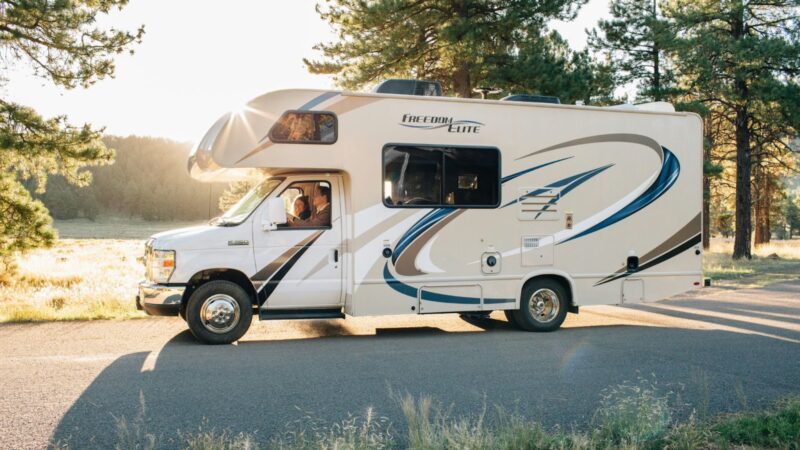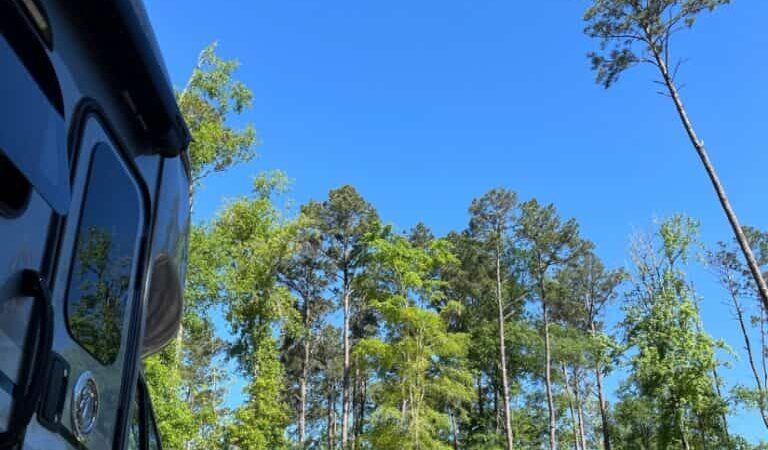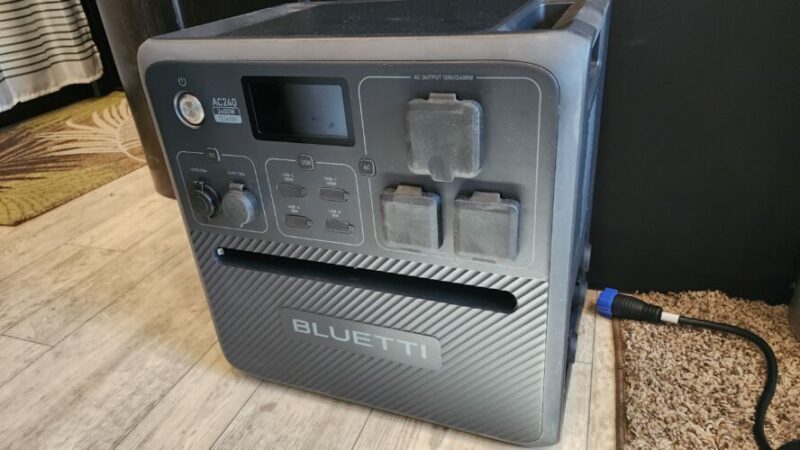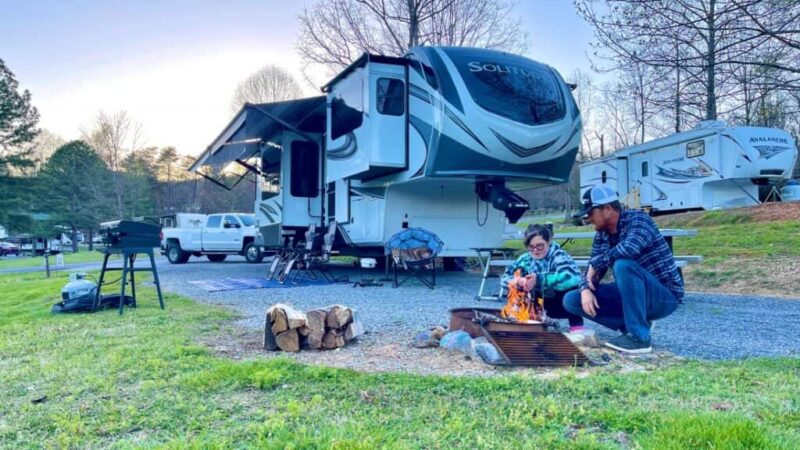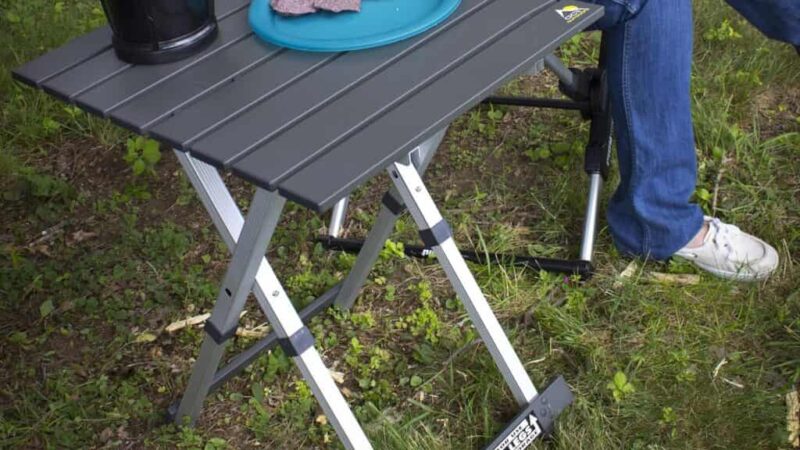How to Choose the Best State For RV Domicile: 4 Factors For RVers, Van Lifers & Digital Nomads
Which is the best state for RV domicile? If you’re thinking of giving up your sticks-and-bricks home to jump into full-time RV living, van life, or a travel nomad lifestyle, you’ll have to choose a domicile state. A domicile state is where you will establish full-time RV residency and pay taxes. There are many factors to consider when making this decision, but don’t worry – this blog post is here to help!
Heather Ryan is a full-time RVer, and the owner of Tax Queen, a tax and bookkeeping firm focused on helping digital nomads, RV entrepreneurs, and location-independent businesses. In this article, Heather shares four crucial factors when choosing the best state for RV domicile and some special considerations for business owners.
A version of this article originally appeared in the March/April 2020 issue of Rootless Living magazine.
The content of this article should not be considered official legal or tax advice. Consult a certified accountant or lawyer if you need specific advice for choosing your domicile state and filing your taxes.
4 Factors For Choosing the Best State for RV Domicile
Even if you no longer have a stationary home, you still need to establish residency in a domicile state. But which is the best state for RV domicile as an entrepreneur, digital nomad, or full-rime traveler? I get this question often. There is no one correct answer. It’s dependent on your financial and family needs. However, here are some factors to consider when choosing your domicile state.
1: Vehicle Registration
You will need to register your vehicles in your domicile state, and the costs and regulations will vary by state. Look up how much it costs to register a vehicle, including your RV, in your potential domicile state. You will also want to compare the costs of auto and RV insurance.
You will also want to consider whether the state allows you to renew online. Is there a requirement to get annual vehicle inspections? These factors impact how often you return to your domicile state to complete these errands.
2: Driver’s License
Some states require an upgraded driver’s license to drive larger RVs. Check whether this is a requirement in the RV domicile state you’re considering. Also, ask how often you have to renew your driver’s license and whether that be done online vs. going in person.
3: Health Insurance
Your RV domicile state will significantly impact health insurance costs, especially if you do not get health insurance through your employer. What are your options? Can you buy insurance off the state or government exchange? If so, is that coverage available nationwide or only in-state? Are the state’s health insurance options a fit for a travel lifestyle? Is it affordable?
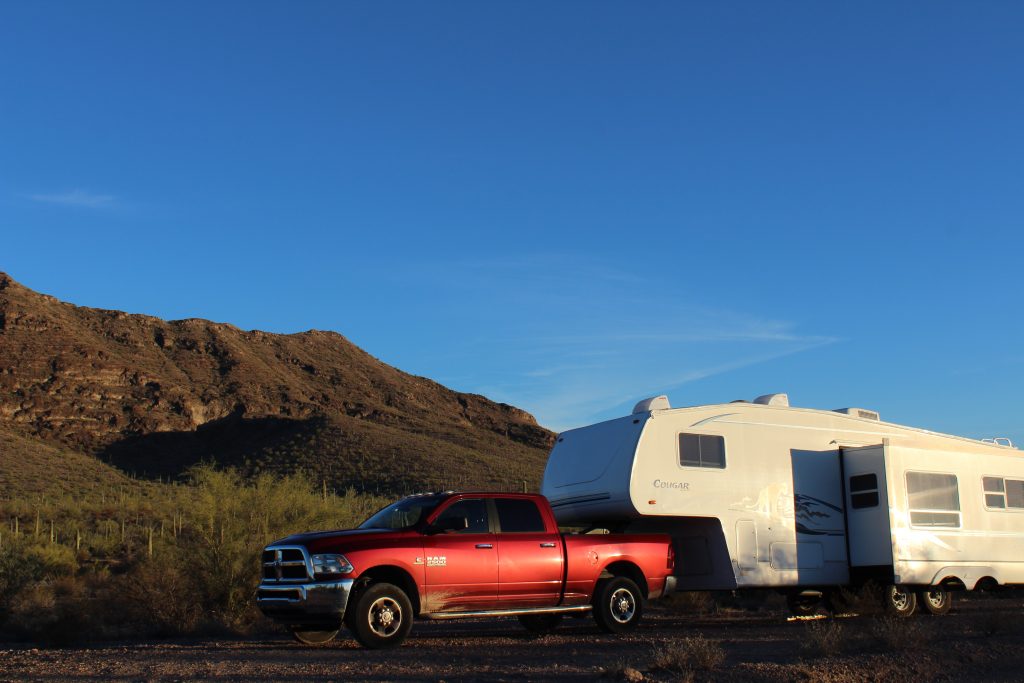
4: Business Ownership & Digital Nomad Entrepreneurship
If you are a digital nomad entrepreneur or own your business, there are other considerations when picking the best state for RV domicile.
Most small business owners will have a pass-through business, meaning the income shows up on their personal return. These businesses include sole proprietorship, partnership, S corp, and most LLCs. It also includes freelancers and independent contractors, commonly treated as sole proprietors.
It is imperative to know your state’s requirements and how that income will be treated as it shows up on your personal return. The safest option is to register your business in your domicile state. Why? It keeps things simple, clean, and easy to track.
Here are six additional questions to ask yourself as you choose the best state for RV domicile and your business.
1. Will you be doing business in multiple states?
If your business conducts physical business in multiple states, you may owe state income tax to other states, even if your domicile state doesn’t require you to file.
2. Is there a business or franchise tax in a state?
Texas has a franchise tax based on your business income. It requires all business owners to file a franchise tax report on whether or not they owe any tax. It’s very important to be aware of this tax, so you don’t get penalties for failing to file.
While Washington has no income tax, it does tax businesses. This tax is known as the business and occupation tax. Are you prepared to pay the extra taxes and know that the tax is required?
3. Is a separate tax return due for that state?
Many states require a separate tax return for a partnership or an S corp business. As a sole proprietor in no income tax states, you typically only file a Form 1040 with a Schedule C. However, it’s essential to know what is exactly required when filing taxes in each state, not just federally with the IRS.
4. Is there a tax on services and goods?
Both Texas and South Dakota tax services and goods. Be aware when setting up a business that several states tax services, so be sure to do your research.
5. Does your business have a stick-and-bricks physical location?
Consider the physical presence test if you are running a business. Regardless of your business entity, there are rules to determine whether or not you have to register a business in a state. If you have a physical presence in a state, you absolutely MUST register the business in that state.
The answer is pretty simple if you own a traditional sticks and bricks business. You have a physical location. Therefore, you are required to register in that state.
6. Is your online business considered a physical presence in a state?
What if you are a digital nomad entrepreneur and your business operates completely online? Do you have a physical presence in any state, or can you register wherever you please?
Established rules help determine whether or not you have a physical presence in a state, even for an online business.
Consider the following statements to determine if your digital nomad business has a physical presence in a state:
- Do you have stationary employees in an office in a state?
- Does your business have any type of office, meeting room, or warehouse within a state?
- Do you work with a client in their office on a project?
- Do you hold a physical business meeting or conference?
- Do you bank in a specific state (online banking can be argued here)?
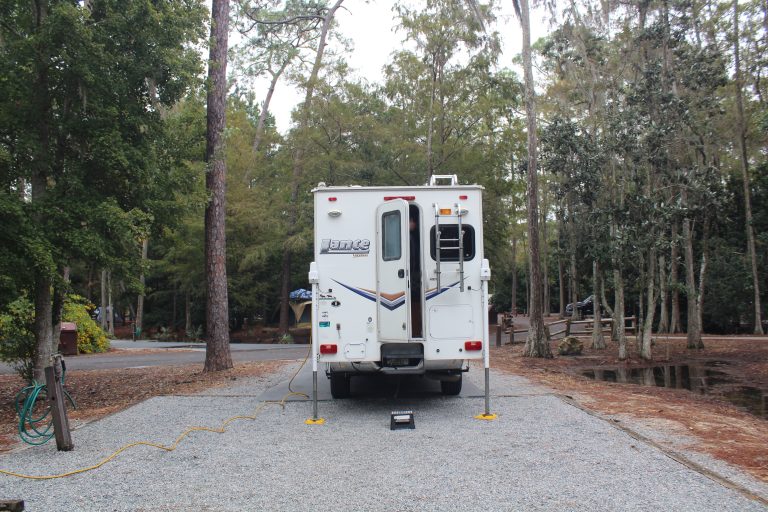
Did you answer yes to any of the above statements? If so, the state considers your business to have a physical presence. You will most likely be required to register there.
If you answered no to the above statements, consider registering your business in your domicile state. It’s the safest option to avoid audits and questions from state and federal authorities.
Why mess around with registering in the wrong state only to be caught later on? Get it right from the start and avoid headaches in the future with state departments of revenue. If you move states, you can move your business with you.
Other Considerations for the Best State For RV Domicile
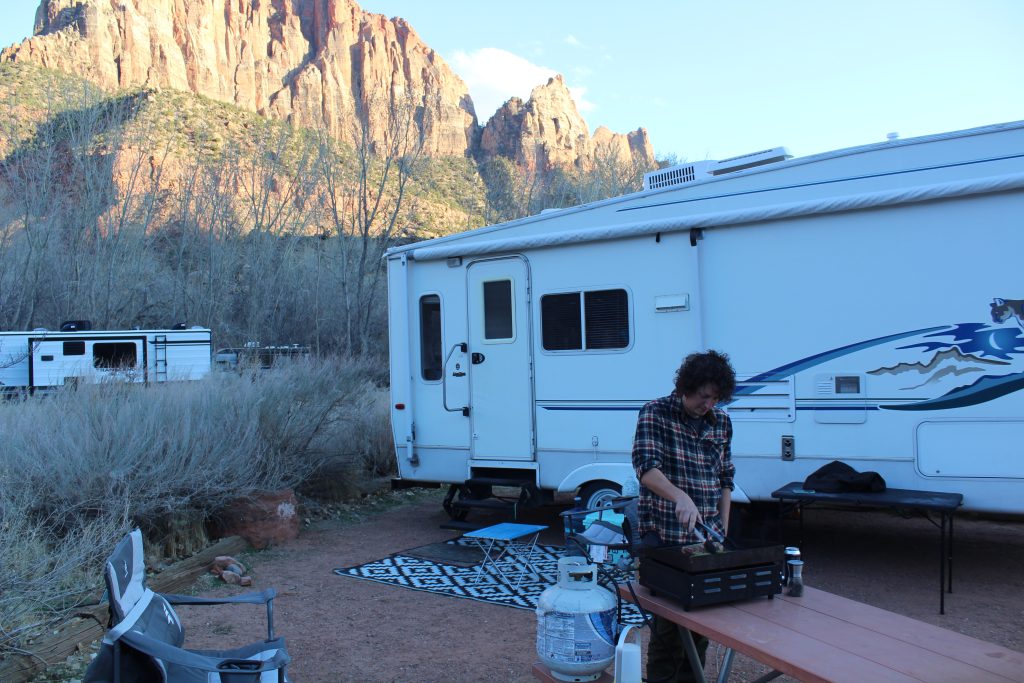
There may be other factors specific to you and your family when selecting the best state for RV domicile. For example, you will want to look into the state’s homeschool laws and requirements if you have kids.
Some states have stricter time-in-state requirements that make it more difficult to establish residency.
Maybe you would be impacted by the state’s inheritance laws or other specific regulations and taxes. Understand how a state’s laws and taxes may apply to your unique situation.
Which is the Best State For RV Domicile?
Florida, South Dakota, and Texas are the three most popular domicile states for full-time RVers. However, other considerations may make a different state the best for your RV domicile.
RV Domicile in Florida
Florida is a very popular state for full-time RV residency. The state has no income tax, does not require annual vehicle inspections, and allows RVers to use a mail forwarding service as their physical address. Florida is also a popular winter destination for RVers, so many find it convenient to domicile in a state where they spend a lot of time.
RV Domicile in South Dakota
South Dakota is one of the easiest states to establish full-time RV residency. You only need to prove that you stayed in the state for one night via a receipt from a campground or hotel. Driver’s license renewal is every five years. This state also does not have income tax and allows the use of a mail forwarding address as an official address.
RV Domicile in Texas
RVers and full-time travelers consider Texas one of the best states for RV domicile because it does not have income, inheritance, or estate taxes. It also allows the use of a mail forwarding address as a physical address and is another popular state for wintering RVers.
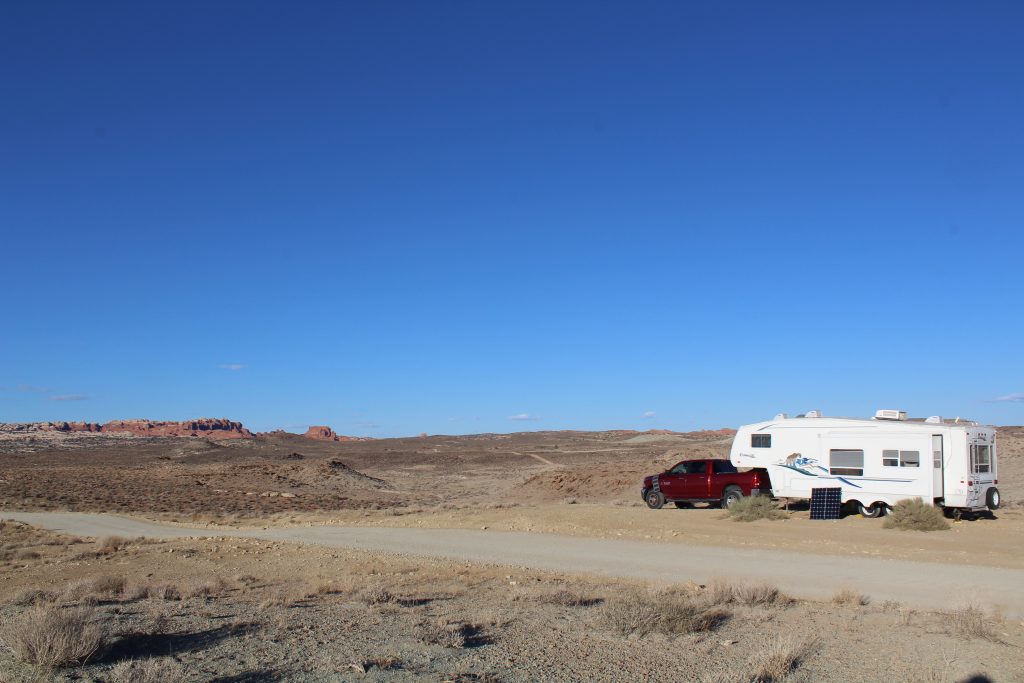
Where will you establish your full-time RV residency?
Hopefully, this article helped you select the best state for your RV domicile based on your needs. The next steps are establishing your address, obtaining a state ID, and registering your vehicles. If you need to use a mail-forwarding address as your residency, you can get one through a service like Escapees, America’s Mailbox, or American Home Base.
For more information and resources for RVers and digital nomads transitioning to a full-time travel lifestyle, check out Rootless Living magazine. Each issue includes tips and guides to help you get the most out of living and working on the road.
About the Author: Heather Ryan, EA
Heather Ryan wrote the print version of this article, which originally appeared in the March/April 2020 issue of Rootless Living magazine. This edited version includes additional information.
Heather Ryan owns Tax Queen, a tax and bookkeeping firm focused on helping digital nomads, RV entrepreneurs, and location-independent businesses. She takes the burden of finances off the shoulders of entrepreneurs, so they can focus on growing their business.
Heather is a full-time RVer who’s been on the road since September 2016 with her husband and two dogs. She became an enrolled agent (EA) after apprenticing under an EA with 35 years of experience for several years.
If you are ready to learn more about what Heather can do for you, connect with her at Tax-Queen.com

Subscribe to Rootless Living Magazine
Source: https://rootlessliving.com/best-state-for-rv-domicile/


